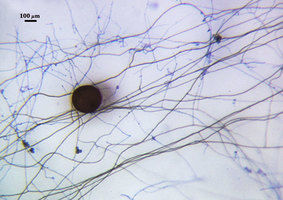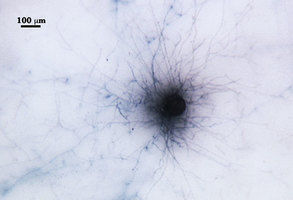Germinating Spores
| Germinating spores of R. clarus, either singly or in pairs (below) | ||
|---|---|---|
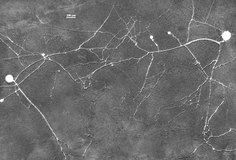 | 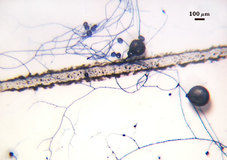 | 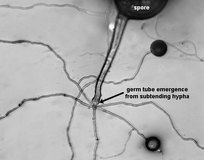 |
Rhizophagus clarus, like some other glomoid species, produces intercalary and terminal swellings that do not appear to develop into spores. Some spores produce abundant branch hyphae directly from the emergent germ tube (far right photo).
| Dentiscutata heterogama (left) Claroideoglomus etunicatum (right) | |
|---|---|
|
|
The spores in the photos above were incubating on membrane filters for 16 days before being stained. Note the various types of hyphal morphology (coarse vs. fine; pigmented versus hyaline). Dentiscutata heterogama spores often produce abundant auxiliary cells from hyphae branching from the germ tube.
